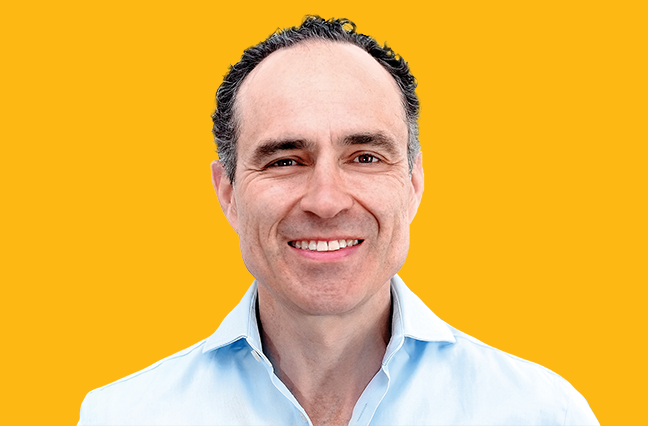
Accelerating Change

Formed by the merger of Knip and Komparu, Digital Insurance Group helps insurers speed new digital offerings.
Digital Insurance Group is now my third private-equity backed technology company. Before I started this journey, we launched a private equity firm called LeapFrog. We founded the world’s first microinsurance fund, backed by Bill Clinton in 2007. We raised $130 million for the first fund and now over $1 billion to invest in insurance companies and brokerages in the emerging markets with a profit-with-a-purpose lens.
Before setting up DIG, I was the managing director and executive board member of Germany’s second-largest online price-comparison business, Verivox. We successfully sold the company to Germany’s largest media company.
Then, I was working with the investors of Knip, and we were kind of brainstorming and thinking, “What can we do with Knip to really scale the business model?” In the spring of last year, we founded the Digital Insurance Group. We merged two businesses together to create it—Knip on the one side, which was Europe’s first digital brokerage, and Komparu, a software and service company focused on insurance and brokers. And we’ve come a long way since.
Established companies don’t see us as a threat anymore; they want to collaborate. Just recently we have signed a multiyear collaboration agreement with Zurich Insurance, and we also work with other insurers and support banks with bancassurance products. There are a lot of lessons learned that we apply in our current business.
The two businesses were highly synergistic. We used the technology of both companies to build a new tech stack. Knip was really disrupting the market. It was Europe’s first digital broker and had a fantastic mobile app. It had developed its own CRM system, not using Salesforce like others do. It was very strong in terms of customer engagement, using a recommendation engine to really interact with the customer, giving advice and doing upsell and cross-sell.
Komparu started seven years back in the Netherlands and set up the largest car insurance comparison portal. And then it used that technology to develop a software-as-a-service model, selling comparison tools and other technologies to brokerages, insurers and distributors. Komparu was very strong on the web side and the portal but also, more importantly, on leveraging its API knowledge and how to integrate into insurers’ systems.
The core of the price comparison business was being able to integrate into back-end systems of insurers, being able to get data and push data back. Komparu also had a couple of hundred customers on the B2B and the software-as-a-service side. We combined that knowledge and expertise, and we built a new tech stack, the DIG core platform.
We’ve developed an insurance portal that Aon is selling to its corporate clients, which uses this as an employee benefits portal. The Aon platform allows its corporate clients to offer health insurance comparison, advice and real-time purchase to their employees. For insurers, we also develop tools that are being used for their agency force, and we work with larger brokerages to help them with their digital tools. For banks, we are working on cutting-edge digital bancassurance solutions that can be easily integrated into their banking apps or portals.
We currently have projects in multiple countries in Europe and projects in Latin America. We also have prospects in Asia. At the end of the day, the need from the end customer’s perspective is the same no matter if the person sits in America or in Europe. The customer wants to have transparency. He wants to have advice. He wants to be able—in an omni-channel way—to interact with you as an insurer or broker.
And you have others. Google was active in the insurance comparison business in Europe. It did mortgage and car insurance comparison. It stopped that activity, but it will come back. It’s only a matter of time. You look at Amazon.
Amazon in the U.K. has rolled out insurance products and is hiring people. All the tech companies, all the platforms will fight for clients.
Many insurers have not woken up yet. It’s really a crucial time in history because, if you look at some of the big insurers, you see that their customer numbers are going down. You see the revenue is stagnating. They all need to make sure they can retain their existing customer base. They need to get access to new customer segments. They need to get new sales. In order to do that, they need digital tools. In order to reach the millennials, you have to go where they are. They will not be at home waiting for the insurance agent to knock on the door and sit at the kitchen table. You’ve got to go to where the need is and make sure you’re at the point of sale.




